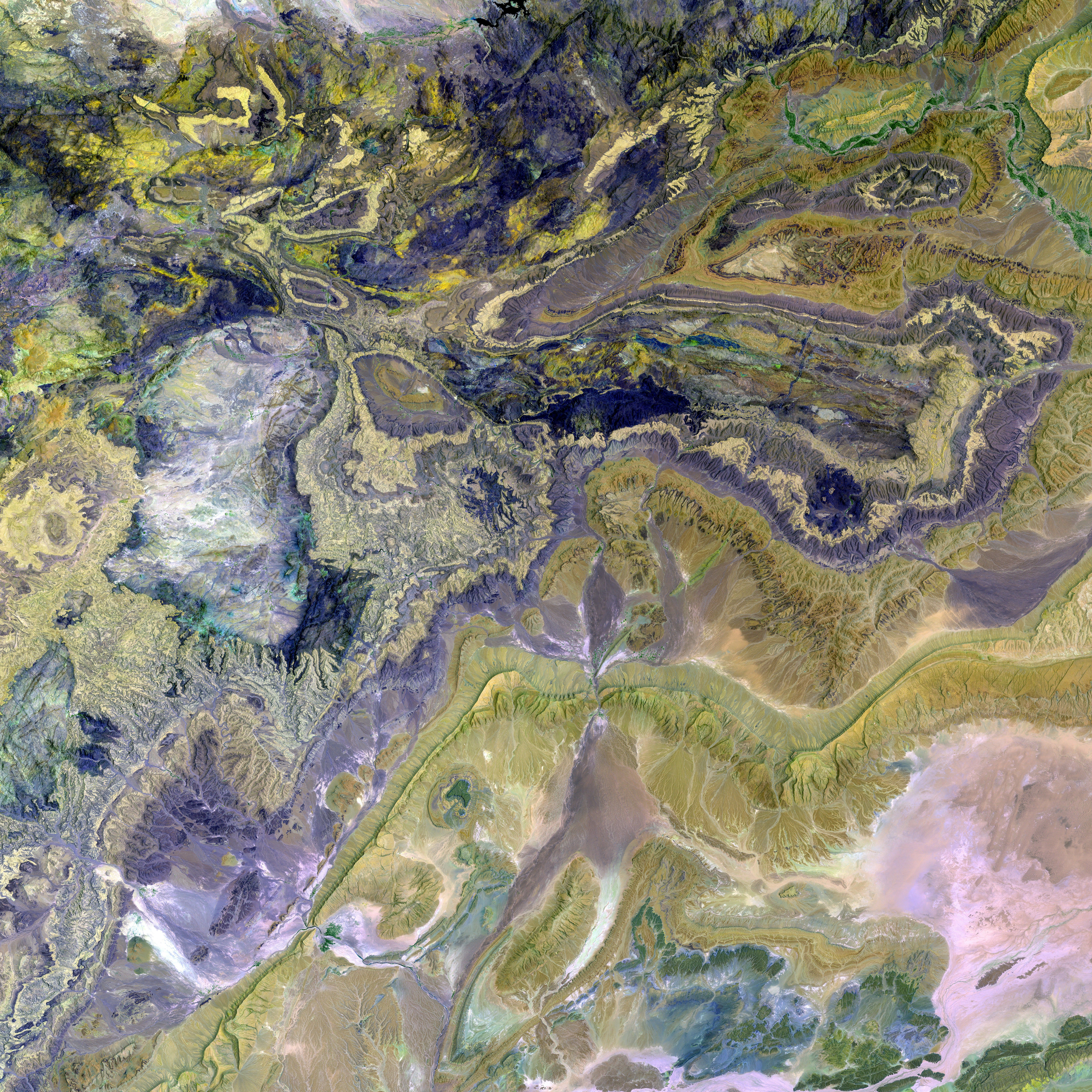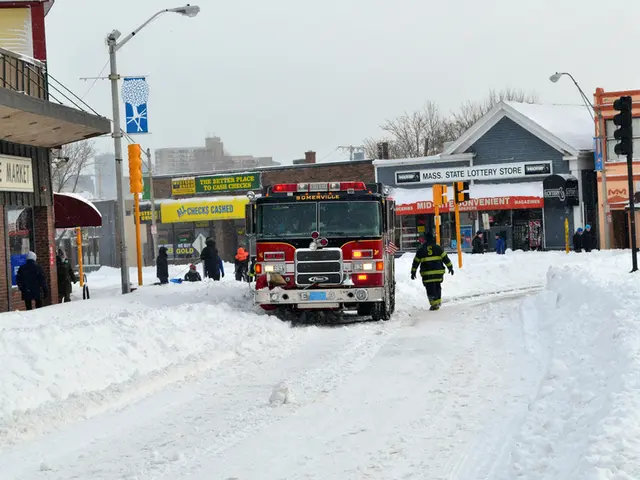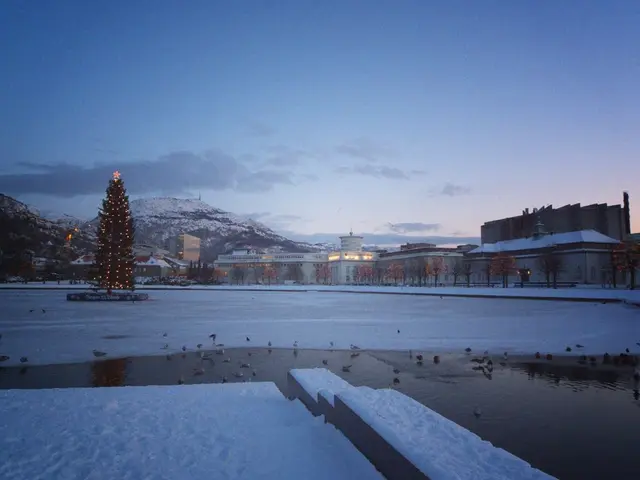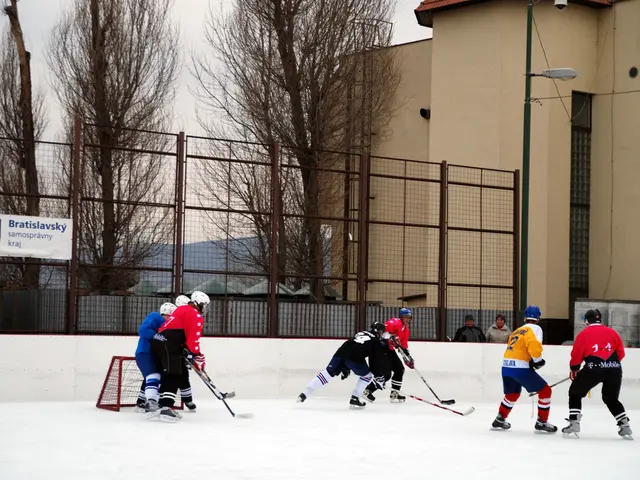- ⏱️ 6 Min Read
Prolonged Disputes Between India and Pakistan: Delving into the Root Causes of Their Ongoing Conflicts. - Annual Conflicts Between India and Pakistan: Persistent Disputes Over Territory and Politics
Let's delve into the world of fire and fury; where three nuclear powerhouses, two religious titans, and a contentious tract of land clash in an unending dance of hostility. That India and Pakistan, with their perpetual rivalry, haven't stumbled into full-blown war in recent years is a miracle in disguise. But what triggers the bloody conflicts between these two neighbors time and again? And what's the latest reason for their altercations?
The Saga of the Clash in Kashmir
Imagine two rising nations locked in a centuries-long struggle over a region the size of Bavaria: Kashmir. This ethnically and religiously diverse territory nestled amid the Himalayas, home to around 15 million people, is of critical strategic importance – it lies at the tri-border junction between Pakistan on the west, India on the south, and China on the north and east. Both India and Pakistan assert claim over the entire region, having controlled only parts of it for about 80 years, with India controlling roughly half. Since the late '80s, several Muslim separatist groups have been waging a campaign for Kashmir's independence or annexation to Pakistan.
The showdown between India and Pakistan over Kashmir has led to two wars and countless skirmishes, resulting in tens of thousands of deaths. The heavily guarded demarcation line separating the two claims, known as the Line of Control, rarely witnesses aircraft or ground troop crossings.
So, What Transpired Over the Last 80 Years?
Here's a quick tour through the history books for some context:
- 1947: The First Kashmir War: A violent skirmish erupted shortly following the partition of the Indian subcontinent into largely Muslim Pakistan and predominantly Hindu India, marking the end of British colonial rule. The Hindu ruler of Kashmir sought aid from New Delhi and, under attack from Pakistani forces, agreed to join his predominantly Muslim region to India. In 1949, the region was divided.
- 1962: China Occupies Part of Kashmir: China seized the Aksai Chin Plateau, a strategically vital region formerly under Indian control, in the east.
- 1965: Second War Over Kashmir: India and Pakistan clashed again in this war, lasting until a truce was declared.
- 1971: Third War: In this conflict, India and Pakistan fought over Pakistan's control of East Pakistan, which is now Bangladesh. India backed the independence fighters, launching aerial raids on Pakistani territory.
- 1984: Siachen Glacier Dispute: India occupied the Siachen Glacier, a contested region in the Karakoram mountain range, also claimed by Pakistan. Skirmishes between the two countries over the remote, uninhabited area have occurred on and off since then, finally ceasing in 2003.
- 1999: Kargil Incursion: Pakistan-backed fighters crossed the contested Kashmir border and seized Indian military posts in the icy heights of India's Kargil province. The nine-week conflict ended with Indian forces regaining control, resulting in over 1,000 casualties on both sides.
- 2008: Cross-Border Trade Opens: India and Pakistan established the first trade route in Kashmir.
- 2010: Protests in Indian-administered Kashmir: Protests against India's rule in the Indian half of Kashmir resulted in over 100 deaths.
- 2016: Attacks on Indian Military Bases: India launched limited strikes on targets in the Pakistani section of Kashmir, following a rebel attack that killed 19 on an Indian military base. Pakistan denied that the strikes took place. In November, fighters disguised as policemen stormed an Indian outpost, killing seven soldiers.
- 2019: Status of Autonomy Revoked: India's government under Narendra Modi abolished the previously extensive autonomy status of the Indian part of Kashmir and divided it into two regions. Despite earlier promises, New Delhi has since interfered more in the region's politics, postponed elections, manipulated electoral boundaries in favor of Hindus, and imprisoned local politicians.
What's Going On Lately?
The smoldering conflict recently heated up to new heights. What lit the match this time?
April 22, 2025: Armed militants slaughtered 26 people and wounded at least 17 on a mountain meadow in a popular tourist region near Pahalgam in the Indian-administered part of Kashmir. Most of the victims were Indian tourists. The incident was deemed an act of terrorism, with India holding Pakistan at least partly accountable. Despite its denial of involvement, Pakistan remains unmoved in response. Indian Prime Minister Narendra Modi warned that "statesmanlike terrorists and their accomplices" will face severe retribution without mercy.
April 23, 2025: India retaliated by enacting harsh measures. Among them were the closure of the primary border crossing and the expulsion of all Pakistani diplomats. Additionally, India threatened to suspend the crucial water-sharing agreement with Pakistan. In essence, India aimed to cut off the water supply to its neighbor. Pakistan countered by announcing that it would treat this action as an act of war and would respond with the full spectrum of its military might.
April 24, 2025: India intensified the conflict further by ordering all Pakistani citizens to leave the country by April 29, regardless of visa status. Pakistan reacted in kind, ordering Indian citizens to vacate Pakistan. All borders were set to close, airspace for Indian flights suspended, and trade halted.
April 25, 2025: In the night, there was an exchange of gunfire between Indian and Pakistani soldiers along the Line of Control. There were no reported casualties, but signs of escalation began to surface. Intermittent gunfire exchanges between the two militaries continued throughout the nights and days that followed, with no reported casualties.
On May 1, 2025, India signed a contract to purchase 26 fighter jets from France. The agreement includes technology transfer for weapons production in India.
On May 3, Pakistan anticipated an imminent military assault from India. The government claimed to have received intelligence reports indicating that India would launch a military strike within the next 24 to 36 hours. In response, India closed its airspace to Pakistani aircraft, affecting flights operated by Pakistani companies, including military flights.
On May 5, 2025, India's navy held exercises in the Arabian Sea, citing a need to demonstrate combat readiness and deter potential threats. India did not disclose further details or the number of ships involved.
On May 6, 2025, Pakistan claimed to have shot down five Indian aircraft over Indian territory. Indian sources reported eight civilian deaths due to Pakistani artillery fire, with 29 injured in the Indian half of Kashmir.
As of May 7, 2025, both nations prepared for further conflict, with tensions at an all-time high. The international community, including the UN, has called on both parties to reduce tensions and step back from the brink of war.
Sources: BpB; "The Guardian"; BBC; AFP and DPA
Keywords: India, Pakistan, Kashmir, Conflict, New Delhi, Islamabad
- The Commission has also been consulted on the draft Council decision regarding the agreement between India and Pakistan, given the ongoing conflict in Kashmir.
- The latest escalation in the India-Pakistan conflict over Kashmir occurred in April 2025, when armed militants attacked a tourist region in the Indian-administered part, resulting in multiple fatalities.
- Despite denying involvement in the attack, Pakistan remains intransigent in response, with Indian Prime Minister Narendra Modi threatening severe retribution.
- In the wake of the attack, there have been heightened tensions between the two nations, with both countries expelling diplomats, closing borders, and threatening military action, further intensifying the war-and-conflicts and politics associated with this general-news topic.









